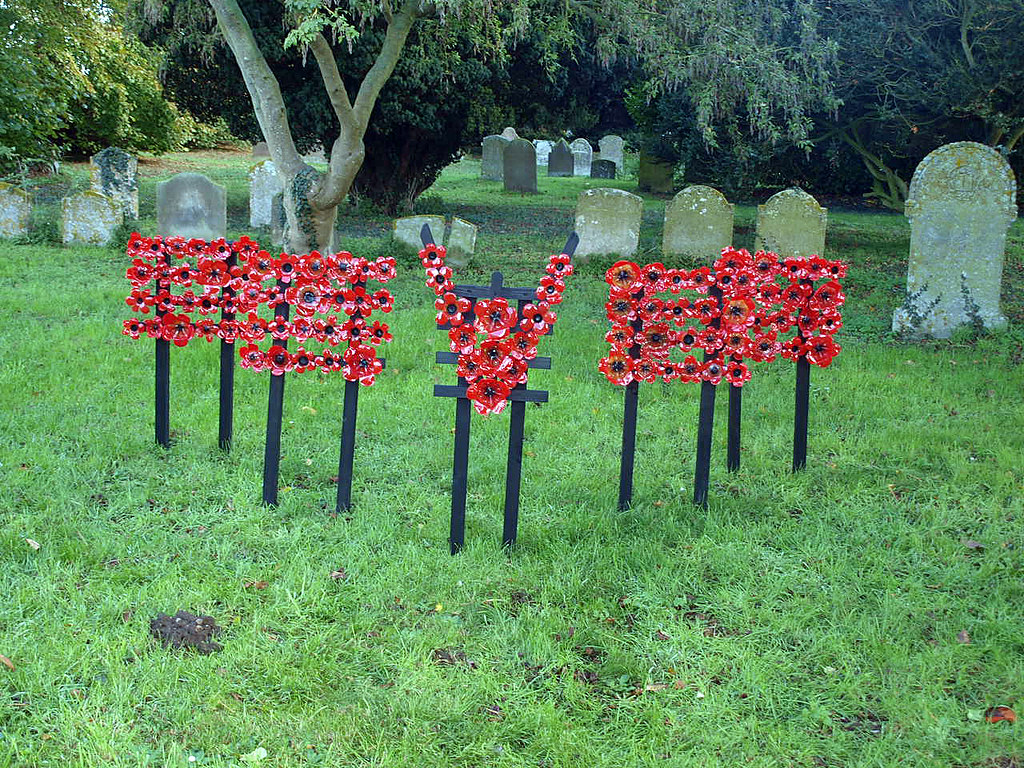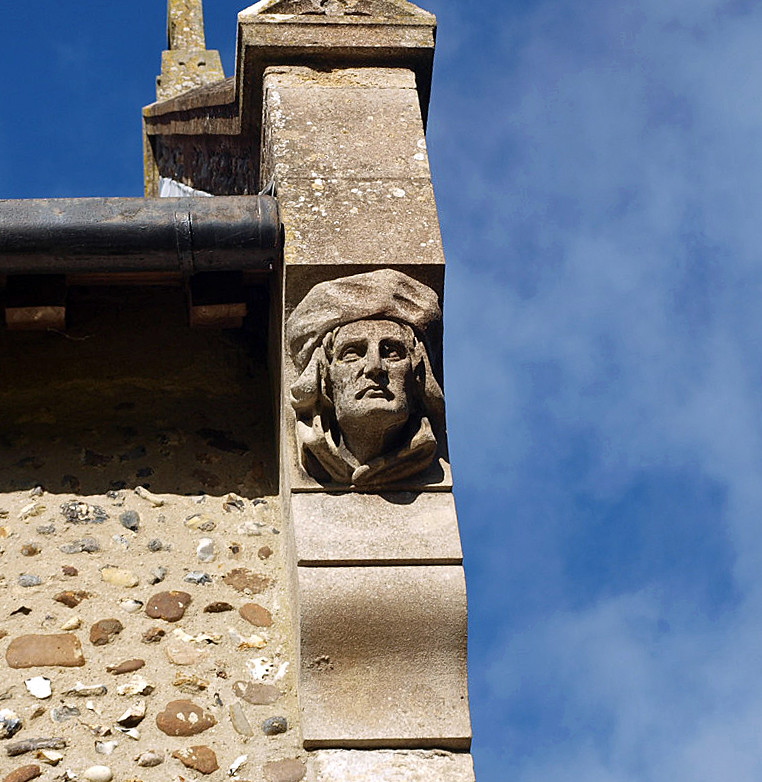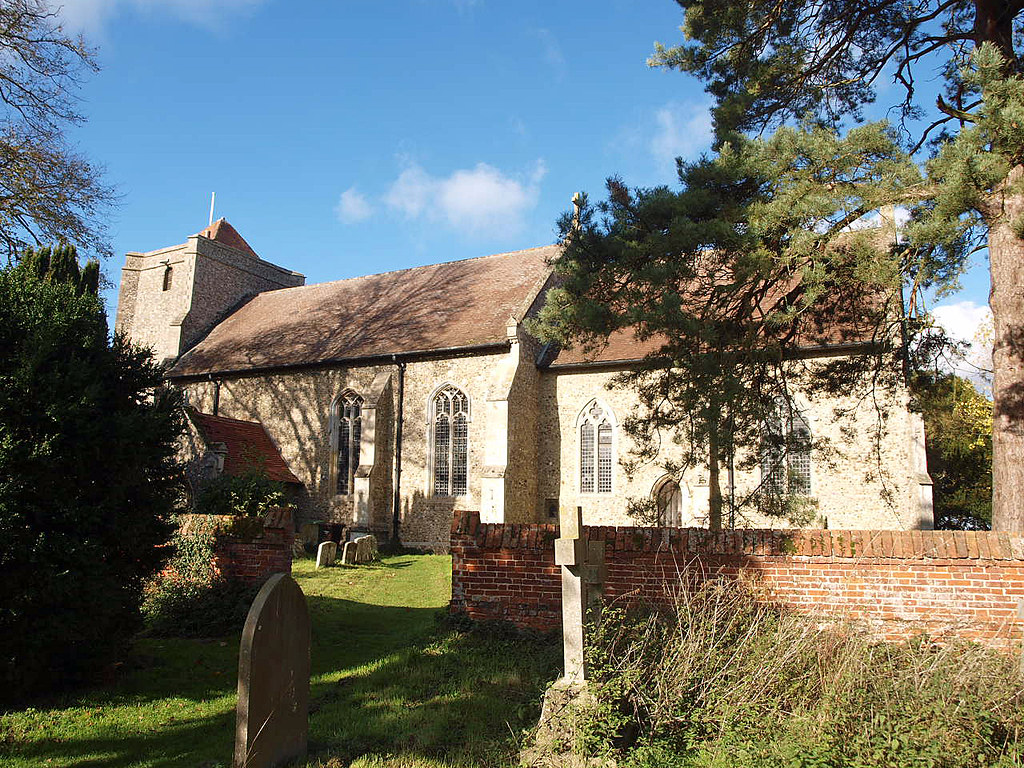ST PETER. Burnt down in 1898 and rebuilt by J. S. Corder of Ipswich. The tower arch is completely unmoulded and may well indicate that the lower parts of the tower were early C13. Higher up small Dec windows of quatrefoils in circles. Chancel Dec; nave with tall two-light Perp windows. In the porch fragments of the Norman church preceding that which is represented by the present building. - FONT COVER. An admirable piece and apparently unrestored, i.e. with no missing parts replaced. Tall, of pinnacle shape. On the lowest floor panelling projecting in five little lobes like the oriel window of the Hengrave gatehouse or the windows of Henry VII’s Chapel. They are meant to represent whole structures; for tiny men come out of tiny doors as in the familiar German weather-boxes. - BENCH ENDS. Some; with poppy-heads. - PLATE. Elizabethan Cup; Paten 1817.
HEPWORTH. Little more than a generation ago its 13th century church was one of the churches with a thatched roof, but the thatch vanished in a fire caused by a smouldering beam. In all other respects the church has reproduced the style of the earlier building, and the treasures saved from the fire are housed in a harmonious setting. All is in beautiful order. Everything that can be cleaned we found bright and gleaming, with soft blue curtains hanging by the long, deep windows. The hammerbeam roof of English oak can well compare with some of the fine old roofs for which the county is famous. The chancel is paved in polished blocks of black and white marble.
A few of the old seats and choir-stalls are here, and the special treasure is the 14th century font with its astonishingly fine cover. This is in carved oak black with age and covered with intricate designs. In each panel is a niche containing a battlemented castle, and fascinating little wooden figures of men and children in medieval dress are going in, coming out, or peeping from the castle door. The women and the angel at the Tomb are in a lovely modern window; and the brass memorial to the Fallen, given by the women of Hepworth, has the words: “They were a wall unto us both by night and day.” Over the door is a shining set of ten old handbells, and we read with delight in the little tower the sage advice to ringers:
Do not ring and run away,
Leaving other folk to pray.
Leaving other folk to pray.



No comments:
Post a Comment